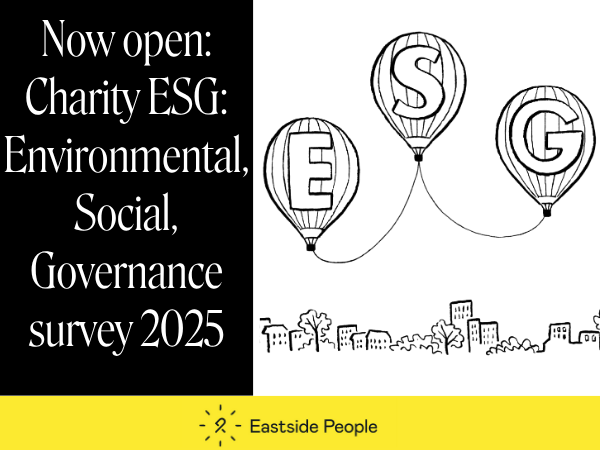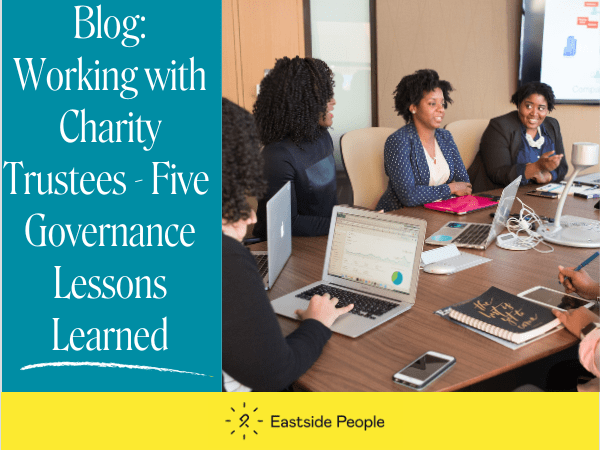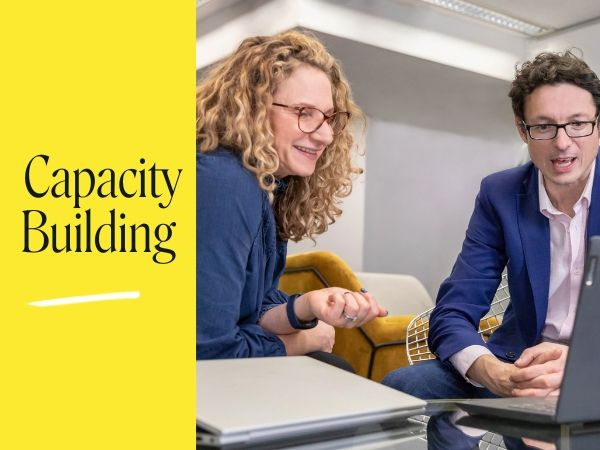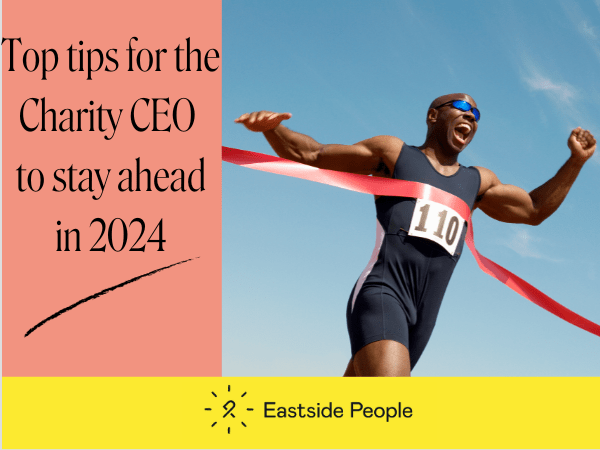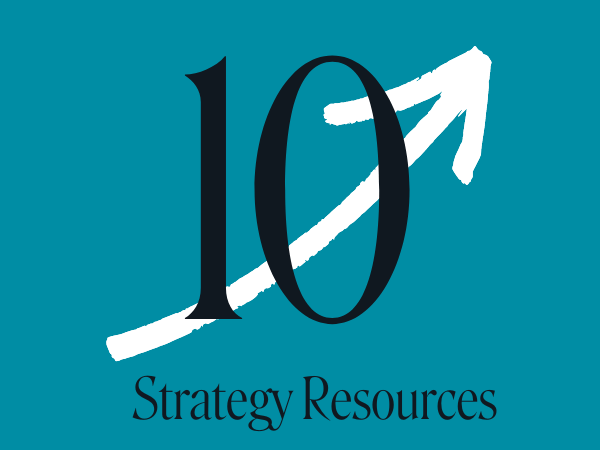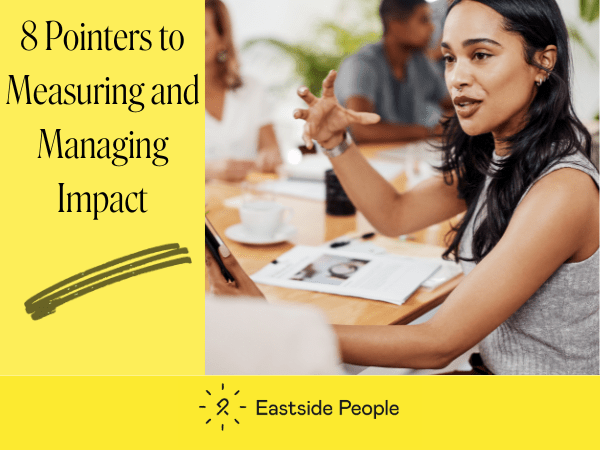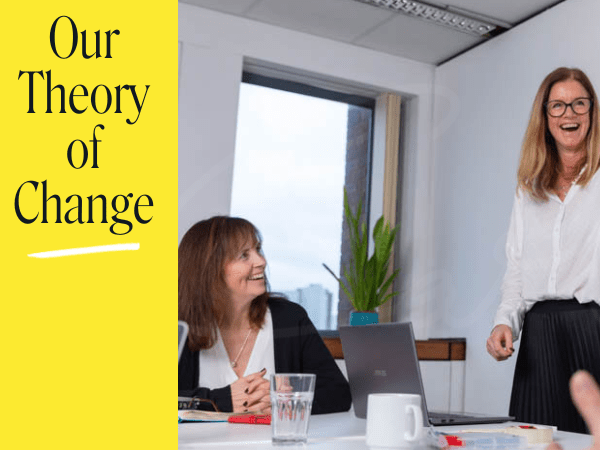Introduction to ESG
In recent years, ESG has become a buzzword in the corporate sector. Companies worldwide are increasingly integrating ESG principles into their operations, driven by investor expectations and regulatory requirements.
Like many corporate ideas, though, this one does not easily translate into our sector. This blog explores what benefits charities and social enterprises can gain from measuring their performance through an ESG lens, proposes some principles to make it relevant, and then links to a simple tool so leaders can start reporting on their ESG journey.
To help and encourage better administration of charities, the Charity Commission updated its guidance for trustees in its latest ‘Charity Annual Return: question guide’. Trustees of charities of all sizes are encouraged to report and explain how their charity is responding to and managing key issues including:
- Governance structures and management: how decisions are made, managed, and reviewed to ensure transparency and accountability
- The handling of ow environmental impact including sustainability and carbon footprint reduction
- Management of social impact including community engagement, diversity, and inclusion.
Benefits for charities and social enterprises
Charities and social enterprises are expected more than most to back up social justice commitments with evidence that they’re good places to work and do make a positive impact on planet and society. Recently the Charity Commission found that public trust in the sector is directly linked to organisations being transparent and operating to high ethical standards. Put simply, we need to walk the walk as well as talk the talk. And this is where an ESG lens can contribute.
As one leader said: “Our stakeholders want to see charities walk the walk and we need to be prepared for a stiffer regulatory environment coming down the road.”
We highlight here six reasons why it would be valuable for charities and social enterprises to embrace measuring and monitoring their ESG. Key benefits are that:
- It supports organisational development, providing a framework to focus attention on resource allocation and continuous improvement
- It aids Board governance by ensuring there is oversight of systems, processes and plans to manage climate, workforce and governance risks. Treating ESG together prevents silo strategies and makes it easier to track progress holistically
- It prepares organisations for higher transparency demands particularly in respect of environmental reporting
- It attracts future workforces since research shows that young people not only recognize the importance of ethics in the workplace but also actively seek out organisations that align with their values
- It strengthens public trust in the organisation’s work
- It improves funding relationships by building evidence that can be used in a case for support, can be included in donor applications, or used to improve practices in priority areas for funders.
ESG principles for charities and social enterprises
- Mission-critical. First, we should redefine what is meant by ESG for charities and social enterprises. The ‘Social’ element is particularly pertinent – much more so than in a corporate setting – and can cover both an internal emphasis on the workforce and an external one on measuring the social impact of an organisation. This means that ESG concerns itself with environmental practice, workforce development, impact measurement, and governance – critical areas for all mission-led organisations
- Material: We should acknowledge that the materiality of ESG risks and impacts will vary given the diversity of the sector. Organisations with property and operations in multiple locations will need very different systems and processes to manage ESG risks compared to small grass roots organisations. Equally, conservation charities will have the potential to have a more complex balance of positive and negative impacts on the planet, compared to those delivering services in the homelessness, mental health, education or arts sectors
- Holistic: We should consider ways to report, measure and build strategies for ESG recognising that there are benefits from bringing together these different elements which are usually managed separately by charities and social enterprises. Together they give a more complete picture of the whole organisation.
But where to start?
Contextualising ESG is important but there is also a practice challenge since there is a dearth of guidance, tools or frameworks which are currently relevant. In 2023, audit and tax consultancy RSM found no evidence of charities reporting on their ESG.
When we recently discussed ESG with one sector leader, they told us: “Most of the tools out there that I’ve looked at are around environmental measures, but I always feel that they are designed for bigger corporate organisations. If you Google ‘ESG’ there’s so much out there, but really nothing dedicated to our sector.”
A practical tool
To fill the gap, my team at Eastside People have been working with partners at ACEVO – the membership group for charity CEOs – and a group of our clients including Brook and Rennie Grove Peace Hospice Care.
The result is a free ESG assessment and reporting tool available to all charities and social enterprises, large or small, across the UK. This tool enables organisations to assess their maturity against environmental, workforce, impact and governance practices. It is first and foremost a development tool giving each organisation a customised, confidential report with benchmarks and an action plan template they can fill out to track progress, wherever their starting points. To find out more about how we can support your charity on its ESG journey, get in touch with our team today
How to start your ESG journey?
Sign up via the button below to start completing our free online survey that opened on Tuesday 27th May 2025 and closes on 25th July 2025.
Start your ESG journey now:




